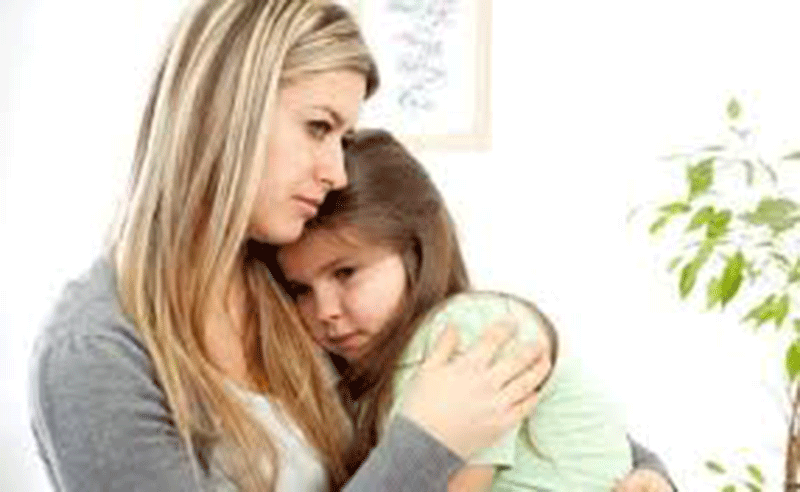Do talk it out
The best time to talk to your child is when they have calmed down and feel relaxed. It is then good to fix them delicious and simple food like grape salad. In this way they can eat while they listen to what you have to say and it will make them feel less anxious.
Do be there
For many children it is important for them to know that their parents are around and supporting them. So when they get overly anxious you might like to hug them or hold them on your lap just to reassure them that everything is alright. When you go someplace together take a hold of their hand so that they will have a sense of security and comfort. While they are at school let them know that they can always get in touch with you no matter what.
Don’t be too involved
You should teach your child to solve their own problems in the best way they see possible. Make sure they understand that you’ll always be there to support them but that they should also learn how to get along by themselves. If they need advice let them know they can discuss things with you first and then solve the problem.
Do get moving
Physical activity is a great way to relieve your child of high stress and anxiety Let them run and play outdoors and get rid of excess energy which will help them shake off worry or fear. If you live in an apartment take your child to the park where he or she can run and enjoy themselves freely.
Don’t avoid activities
Children tend to avoid situations that they fear or are uncomfortable in. It is important for you to help them face these situations to conquer their fears otherwise they will always be afraid. You can help them by controlling the situation that they fear to show them that it can be overcome and that they do not have to be afraid. This will help them cope with problems as they grow older.
Don’t overly reassure
Do not reassure your child too much because then they might think that the situation they fear really should be feared. Just reassure them that everything will be alright and that they should progress without fear to see that the situation can be controlled. Be there to back them up but let them proceed the best they can.
Do allow for expression, even if they can’t explain their worries
Children have great imaginations and love to fantasize. So if your child cannot quite tell you what it is that they fear tell them to draw a picture of what makes them anxious or to act it out with their dolls or stuffed animals. Once you know what is the problem then help your child talk about it and between the two of you figure out what can be done.
Don’t get impatient
Remember that a child will get more frightened or anxious if they see that their parent is getting impatient with them. Always keep control of the situation and don’t let the child see it if they have made you upset. Speak with calmness and always put the child’s feelings first.
Do empathize
Always remember that even though you might think your child’s fears are silly to them it is very real. So encourage them to face what they fear and help them solve the problem. Once they have overcome their fear remember to praise them.
Don’t wait until they are 100% anxiety free to reward their behavior
As your child becomes less anxious and less fearful even though the situation might not have been totally solved reward them for trying to get over their feeling and praise them so that they feel they are doing the right thing.
Want more info about comforting your child?
Keep in mind that children get attached to objects like dolls, blankets, or stuffed animals so let them use these objects to overcome their stress and anxiety. It can be of great comfort to them to have their favorite objects at hand. These objects can help them with the transition from a familiar place to an unfamiliar one like starting school for the first time. Assure them that once they return home their favorite object will be waiting for them.

Leave a Reply